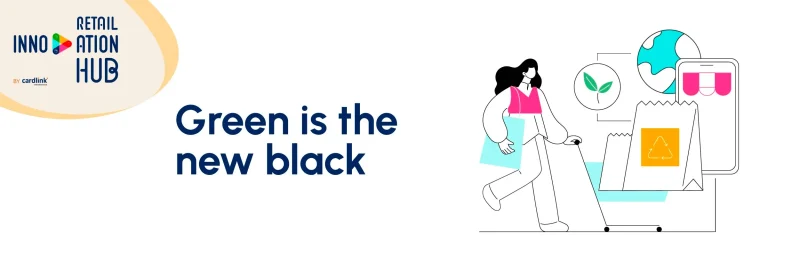Eco-consciousness at Every Point of Sale

How green is becoming the color of retail industry.
Adopting an eco-friendly approach and prioritizing sustainability at every stage of product and service sales has emerged as a strategic priority for the retail sector. Businesses, considering technological advancements and constantly evolving consumer behaviors, are realizing that going “green” not only benefits the environment but also presents a significant business opportunity for growth and differentiation.
From physical stores to the online shopping experience, sustainability has become a key factor influencing customer decisions to complete a purchase. According to Diverstech, 64% of consumers want brands to reduce packaging usage, 50% seek greater transparency about recycling practices, and 46% require clarity on product origins.
Supply chains: Sustainability from the start
Transitioning to a sustainable supply chain is no longer optional; it is an urgent necessity. One effective way to reduce a company’s environmental footprint is to collaborate with local suppliers, thereby cutting transportation costs and lowering carbon emissions. Likewise, selecting partners who follow sustainable practices strengthens a business’s overall ecological strategy.
At the same time, upcycling (the creative reuse of by-products, waste materials, or unwanted products into new items of higher quality or value, whether economic, artistic, or environmental) and recycling (the process of collecting waste materials and converting them into raw materials for new products) are becoming central to reducing waste. Conscious production that avoids overproduction, reuses products and raw materials, and promotes recycling leads businesses toward greener operations.
Physical stores: Redefining spaces
When we talk about eco-consciousness in retail, energy efficiency often comes to mind first. Businesses are redesigning their spaces to consume less energy, more from renewable sources, without compromising the customer experience. Common examples include switching to LED lighting and smart energy management systems, upgrading heating and cooling systems, and installing solar panels.
Additionally, stores should address waste management and resource conservation. Excessive paper use, for receipts, menus, or product tags, is a prime example. A sustainable alternative is electronic shelf labels, which allow price or product information to change instantly with zero waste. Similarly, replacing traditional paper posters with digital displays reduces waste while enabling dynamic, real-time content updates.
Paper usage can also be reduced through digital transactions and e-receipts, which are sent directly to customers’ mobile devices after a purchase. In the UK alone, more than 11 billion paper receipts are issued annually, generating 28,000 tons of carbon emissions, with 9.9 billion of them ending up as waste. Adopting digital receipts could save around 53,000 trees from being cut down only to end up in landfills.
Online sales and delivery services
An eco-conscious approach to online retail is equally important, as consumers expect green practices across all channels. Sustainable packaging has become a global trend, with materials designed to be both durable for shipping and environmentally friendly. Using recycled and recyclable materials, reusable products, and avoiding unnecessary raw materials reduces production, transportation, and environmental costs.
Offering alternative delivery options is another step toward a more sustainable future. While express delivery services have shaped customer expectations, they also have a negative environmental impact. Though eliminating express shipping entirely may not be feasible, retailers can provide eco-friendly alternatives for customers who prioritize sustainability. For example, Amazon has pledged to make its shipments “net zero carbon” by 2040, while Harrods in the UK announced it is replacing its diesel delivery fleet.
Educating and raising awareness among staff and customers
While many businesses are aware of sustainable trends, few recognize that the first step is educating their workforce. Green upskilling involves continuously training employees on environmental issues so they can actively contribute to a company’s sustainability efforts.
Meaningful learning can be achieved through targeted programs on topics such as waste management, recycling, and energy efficiency, delivered via e-learning, workshops, or on-the-job training. This is not a one-time effort but a lifelong learning process that requires commitment from both the business and its employees to ensure ongoing improvement in skills and eco-knowledge.
Beyond employees, customers can also be encouraged to make more sustainable choices when purchasing products or services. Businesses can promote reuse and recycling by offering incentive programs that reward customers for returning or repurposing their old items.
Why should retail go green?
Retailers that embed eco-friendly practices across all points of sale contribute to a better future while also reaping long-term benefits. They attract more conscious consumers seeking brands that align with their values, reduce waste, lower energy consumption, and improve efficiency, ultimately lowering costs. They also strengthen their brand image and foster a deeper emotional connection between customers and products.
The retail of the future is greener, more innovative, and more efficient. For more trends, read the “Retail Innovation Report 2024” by Cardlink, a Worldline brand, in collaboration with Found.ation.


